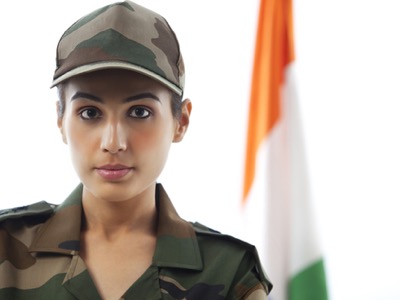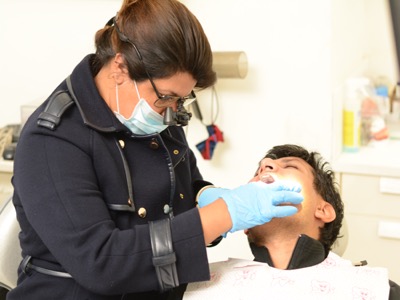 There was recently an enormous uproar in the nation after British filmmaker Leslee Udwin’s documentary on the 2012 Delhi gang rape, ‘India’s Daughter’, was set to release. This led to the documentary eventually being banned from being aired in India. While a lot of people expressed their disapproval of this, several backed it for reasons, some of which are baffling to me. All in all, the ban only attracted more attention to the documentary, and led to a lot more people watching it globally.
There was recently an enormous uproar in the nation after British filmmaker Leslee Udwin’s documentary on the 2012 Delhi gang rape, ‘India’s Daughter’, was set to release. This led to the documentary eventually being banned from being aired in India. While a lot of people expressed their disapproval of this, several backed it for reasons, some of which are baffling to me. All in all, the ban only attracted more attention to the documentary, and led to a lot more people watching it globally.
Some believed this was harsh on the parents of the victim who did not need to relive the entire episode. The parents, however, were all for it, and regardless of there being a documentary on it, this incident and the loss of their child will haunt them for the rest of their lives. What they did want was justice but because of the corrupt Indian judicial system, what is meant to be a ‘fast-track’ case has been held up in the Supreme Court for over two years. Some believed the documentary gave the rapists a platform to defend themselves, which should not have been allowed. Apparently there was no need to get inside their heads to find out what exactly it was that made them rape women. I do not agree with that because the way I see it, the things Mukesh Singh said about having to kill off the victim in the future seemed more like a hopeless threat from his vulnerable position in his prison cell rather than a defence.
It is important to understand the thought behind rape, and while people have argued that that was something already known, I feel that even though it might have been a known fact, it was largely ignored. In India, women have to bear the consequences of extreme misogyny more than other women around the world do. Women are far from respected in India. Boys grow up watching their parents favouring them over their sisters. Honour-killings still take place in North Indian states. Female foeticides are still commonplace to the extent that in the state of Haryana, the sex ratio is terribly skewed in favour of men. The Modi government has, however, initiated the ‘BetiBachao’ programme, and it is hopeful that this will be able to counter the prevailing issue.
The documentary attracted strong disapproval also because it was believed that it tarnished India’s reputation abroad. Of this I am in agreement. Barkha Dutt was at a panel discussion in New York recently where she strongly expressed her disagreement with the fact that India was now being seen as a very unsafe place for women, maybe the most unsafe. She talked about how, statistically, the numbers in terms of rape and violence against women were far greater in the US, which also happens to be a country that has never had a woman President, in which respect India is far ahead. I do completely support this, but what I do not agree with, and having gone to university abroad and having lived alone, is that the fear that you have walking the streets in India, you do not have abroad. Of course, it also depends on where you are, and the kind of places you visit, but generally speaking, you would not have cars full of shady men pull up next to you.
In addition, women abroad are not blamed for getting raped. In India it is seen to be the victim’s fault for the way she was dressed, or the time of day she chose to go out. While gender inequality is inherent all over the world, I would have to say India is the worst hit. Women are nonentities. If there’s one thing that the documentary has revealed, it is that rape is an act of demonstrating power because all their lives these men have been told they are better and more powerful than the opposite sex.
What I do not agree with, and going back to the point about this documentary having tarnished India’s reputation, is that rape and violence against women is a phenomenon that takes place all over the world. As Dutt rightly pointed out, numbers are far greater in Western countries. Therefore, for a documentary to be made solely on the Delhi gang-rape and to make it seem like it is only India where such things happen is very unfair. The film-maker was inspired by the way people came out to protest, which is fair enough, but if her idea was to address the issue of why rape happens, then I firmly believe she would have made a far more informative documentary had she included the ongoings in other countries as well. I also do not understand why none of the other rapists she interviewed, or the victim’s friend who was present during the incident, were part of the documentary, or why the BBC removed the statistics she had included, and how as the film-maker she had no rights or power over this.
It was a very biased documentary, which might not have presented India in its best light. However, it did draw attention to certain crucial points. For one, education, something we’ve been saying can change a lot in this country, probably means nothing for its progression if the ignorant defence lawyers, who one would imagine are highly educated, could come out and confidently express their primitive beliefs in the most revolting fashion. By all means, as defence lawyers, their job is to defend their criminals but that should have been based on points of law. It was not their place to get into a moral argument as to what women should and should not do, especially since they lacked morals or sense of any kind themselves. This actually made me think hard about the Indian education system where students are put under such tremendous pressure and cut offs for the best universities start at 98% these days. What do these marks even mean because when it comes to social awareness there is absolutely none? It is all about book knowledge. It starts and ends right there.
Secondly, instead of blaming women for getting raped, which is often the case in India, it is men who need to be taught to respect women instead of looking down on them. I strongly believe that if this issue is to be dealt with, that is where we need to start.
I do hope the initiatives taken by the Modi government are able to pioneer this much-needed change. This documentary was not perfectly made, but it has brought to attention certain key issues and I hope we can act on these in order to improve the situation not just in India, but all over the world.






